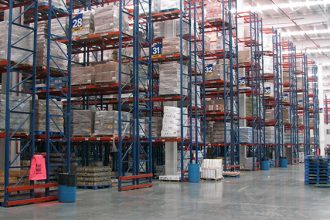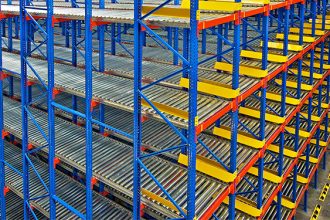Net-Zero Steel Storage Racks Meet Buyers’ Sustainability Mandates
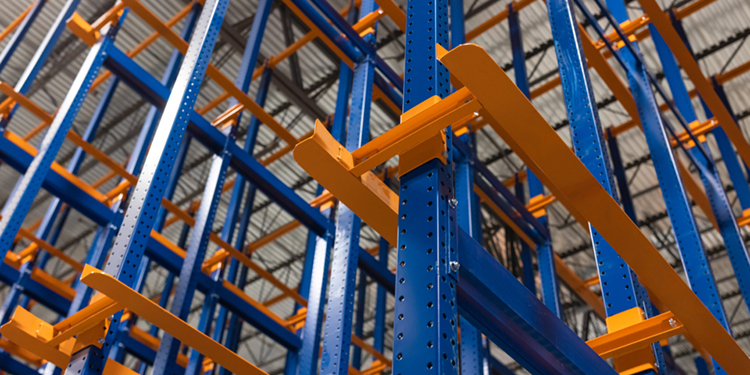
Just like Superman, industrial pallet rack is made of steel. How that steel is manufactured—and the associated impact on the planet—is of increasing interest to purchasers of industrial steel racking as more companies seek to minimize their environmental footprint. Sourcing more sustainable steel is also a trend embraced by several members of the Rack Manufacturers Institute (RMI). Many manufacturers of roll-formed or structural pallet rack components are adopting domestic sourcing initiatives and constructing net-zero steel storage racks.
“We can’t really talk about sustainability in the rack manufacturing industry without talking about steel, as we’re huge consumers of steel,” said Dawn Bigbee, Design Supervisor at RMI member Nucor Warehouse Systems. That makes rack manufacturers uniquely situated within the value chain to make a significant push on sustainability.
Net-Zero Carbon Steel Manufactured from Scrap
Some RMI members, including Nucor, have been manufacturing pallet rack using net-zero carbon steel. This steel’s manufacturing process uses electric arc furnace technology to make new steel from scrap. The process operates at approximately 70% less global average energy intensity. Further, it produces less than one-third the global average greenhouse gas intensity for steelmaking.
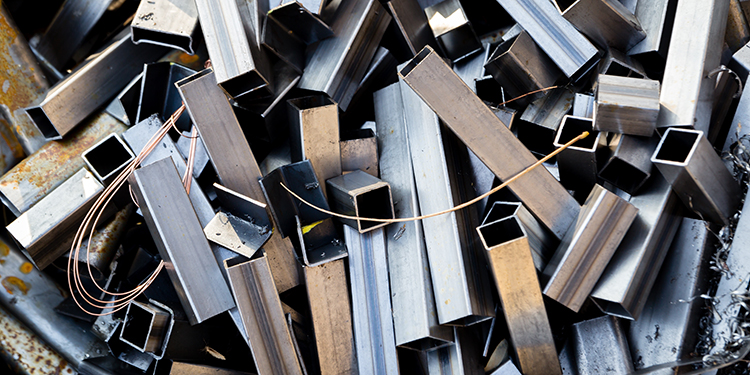
“It also meets the most aggressive emission intensity benchmarks that are part of the Paris Climate Agreement. This puts RMI members using net-zero carbon steel nearly 20 years ahead of the carbon intensity targets for a 1.5-degree scenario,” continued Bigbee.
Decarbonizing steel manufacturing is a focus of the World Economic Forum. It asserts that cutting those emissions by just 10% is achievable by 2030 with minimal costs to the industry or to consumers. The organization notes that there are several technologies available to steel manufacturers to help cut their carbon output. These include:
- Using natural gas to power steel production;
- Adding carbon capture and storage (CCS) equipment to existing blast furnaces; and
- Using zero-carbon hydrogen from renewables as an alternative power source.
“Using net-zero steel means RMI members can provide the confidence to their customers that they are getting steel that emits less greenhouse gases. It’s a win-win type of solution that manufacturers in our industry can provide,” Bigbee added. “It allows steel manufacturers to improve their environmental footprint and rack manufacturers to produce products to help meet their customers’ environmental goals.”
Storage Rack Buyers Seeking Sustainable Products
Sustainability continues to be a focus for many of RMI members’ customers. This is particularly true of the largest ones, as companies seek to transition to a more circular industrial economy. In a survey by the Manufacturing Leadership Council, more than half (55%) of the respondents report having net-zero emissions targets in place. Part of those goals includes purchasing from other businesses with their own environmentally focused initiatives and programs. To verify and track those efforts, more are requiring sustainability audits. These assessments confirm that a rack manufacturer’s practices align with their standards and expectations. The focus is not just on environmental topics, but also on social and governance topics as well.
“Customers are increasingly asking RMI members things like, ‘What are you doing to reduce your environmental footprint?’ ‘Are you complying with local environmental laws?’ As a manufacturing facility in California, we’ve also had to invest in processes to reduce air emissions and monitor discharges,” said Bigbee. “I would love to see our industry continue to take a leadership position to drive sustainability for our collective future.”
Other Ways RMI Members Are Going Green
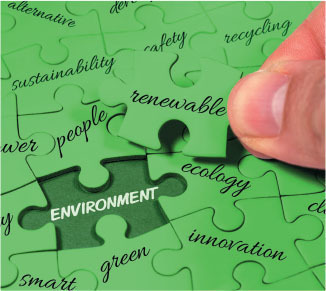 In addition to net-zero steel storage racks, RMI members are enhancing sustainability across their operations and products in other ways. These include zero-emissions transport and domestic sourcing. Further, they’re instituting Environmental, Social, and Governance (ESG) initiatives focused on organizational health, workforce satisfaction, and safety policies. A recent article in MHI Solutions magazine, “Environmental Aspects of Sustainability Are Just Part of the Picture for RMI Members,” offers more details on these differing approaches.
In addition to net-zero steel storage racks, RMI members are enhancing sustainability across their operations and products in other ways. These include zero-emissions transport and domestic sourcing. Further, they’re instituting Environmental, Social, and Governance (ESG) initiatives focused on organizational health, workforce satisfaction, and safety policies. A recent article in MHI Solutions magazine, “Environmental Aspects of Sustainability Are Just Part of the Picture for RMI Members,” offers more details on these differing approaches.
For more information on how your pallet rack supplier can help your operation achieve its sustainability goals, reach out to the members of RMI. They supply industrial steel storage racks and related structural systems worldwide and across virtually every major manufacturing and distribution sector. Visit their website at mhi.org/rmi.

